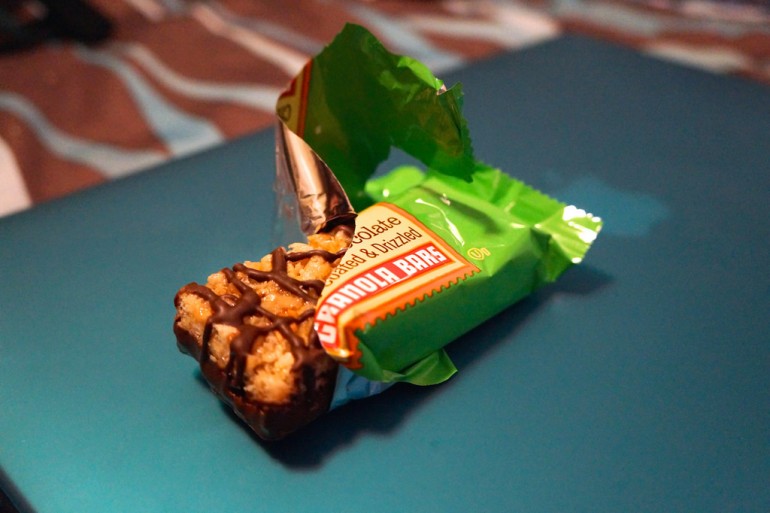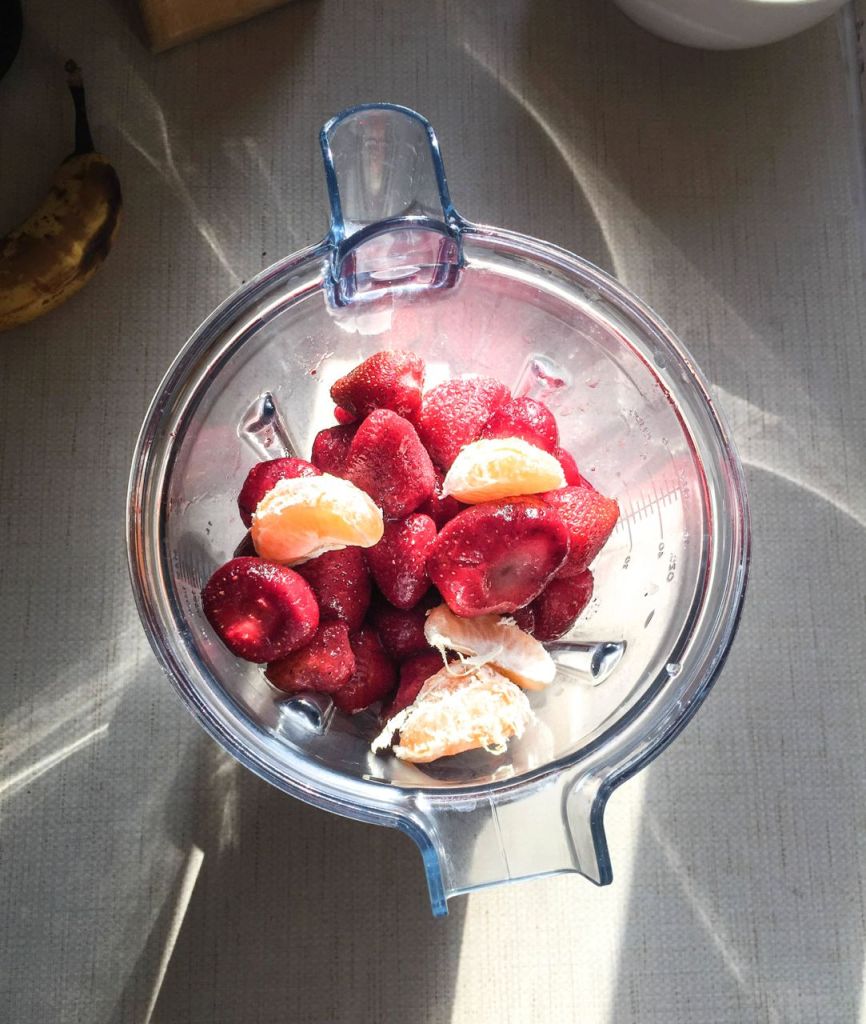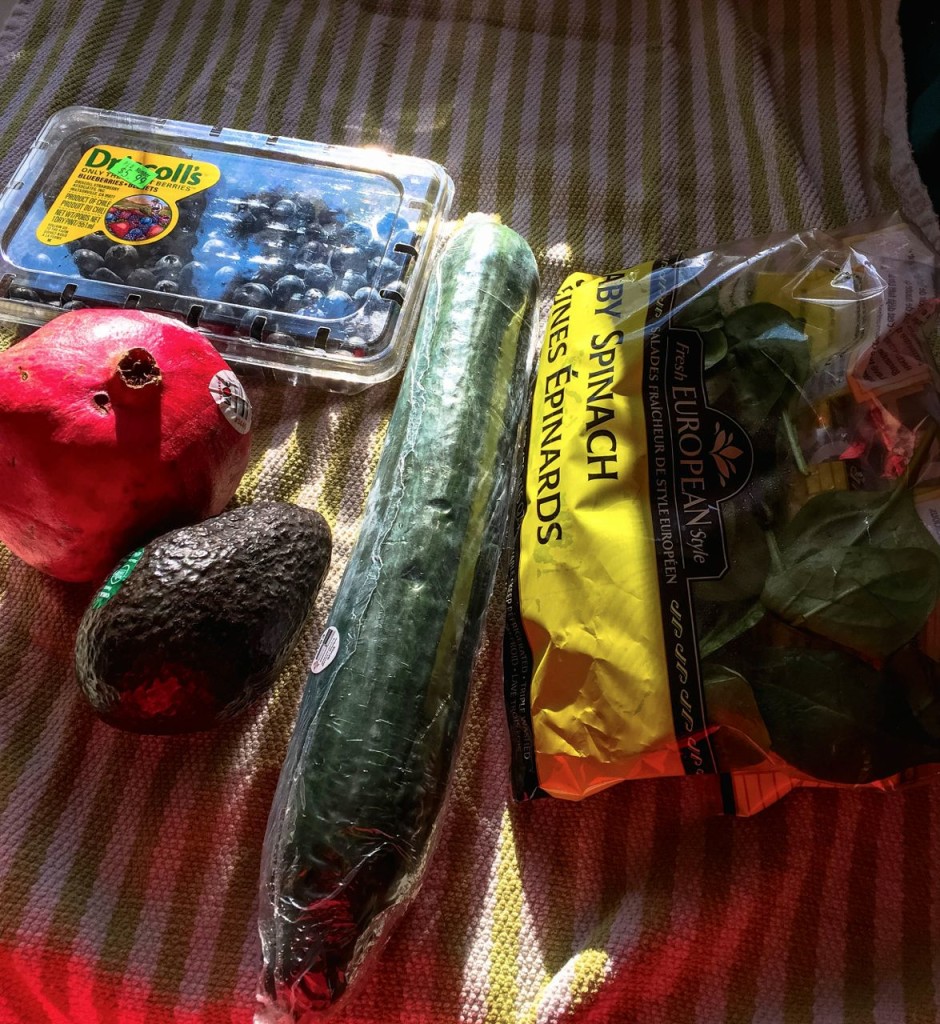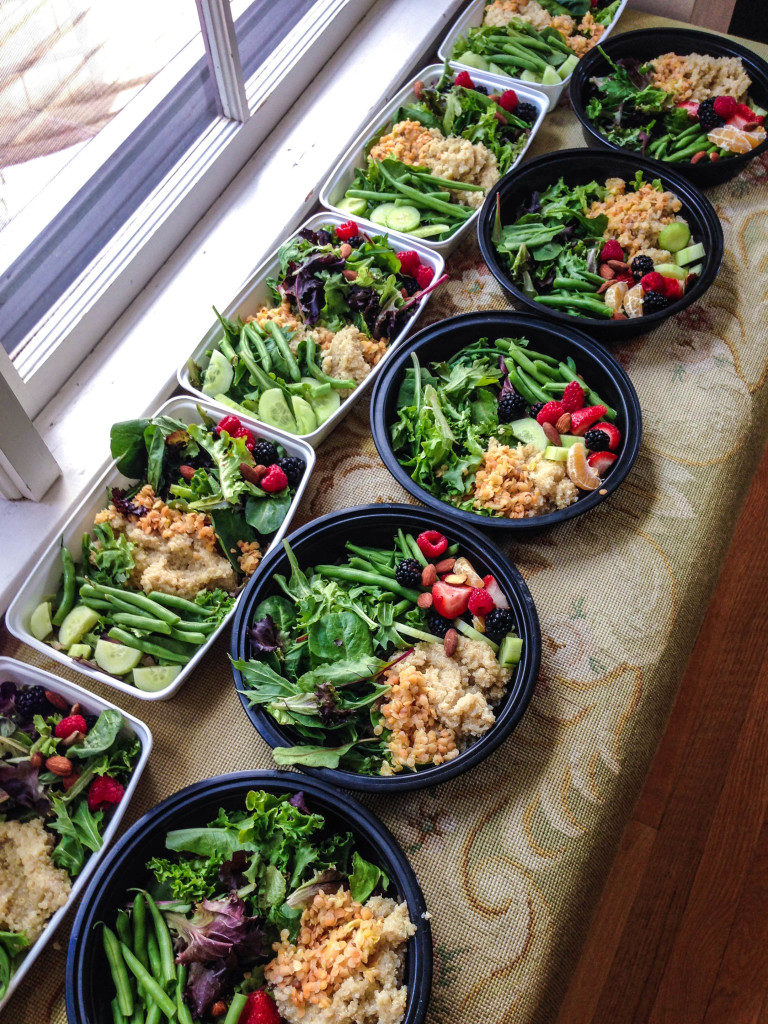As a stressed out college student, sticking to healthy foods can be quite a challenge. Packed schedules, all nighters and the alluring pull of cheap, effortless pre-packaged foods are constant threats to a healthy diet. But this doesn’t mean affordable healthy eating in college is impossible. Follow these five tips to stay healthy and get more bang for your buck.
1. Skip processed foods

Photo by Alanna Schloss
Don’t be fooled by the deceptively low price of processed, pre-packaged foods. Sure, these quick meals may save you time and money in the moment, but a slew of stomach aches and extra pounds will catch up to you in the future.
These foods lack vital nutrients and instead, are full of sugar, salt, fat and chemical preservatives. Even worse, unhealthy packaged foods are chemically designed to spike your blood sugar; they make you crave more sugar, salt and fat, which perpetuates the cycle of unhealthy overeating and overspending.
Also, beware of prepackaged fruits, veggies— these are often much more expensive than whole produce. Cut back on costs and stay healthy by making foods from scratch.
2. Stock up on frozen fruits and veggies

Photo by Danielle Cahoon
Eating healthy poses the challenge of trying to keep raw fruits and veggies from spoiling before you eat them. Instead of trekking to the store on a weekly basis to restock, buy frozen and in bulk. You can buy weeks’ or even months’ worth of frozen spinach, blueberries, kale and other favorites. These are often cheaper than fresh fruits and veggies and are great for quick and easy smoothies and soups.
3. Know when to buy organic

Photo by Danielle Cahoon
Eating organic is always best for your health, the environment and the community at large. However, it isn’t so great for your wallet. If you want to avoid the bulk of nasty pesticides in your food without spending a fortune, get to know the dirty dozen — the 12 most chemically contaminated foods. These include apples, strawberries, celery, spinach, cucumbers and cherry tomatoes.
In the Environmental Working Group’s 2014 Shopper’s Guide to Pesticides in Produce, reports warn consumers that 99% of apple samples tested positive for at least one pesticide residue. If you’re going to buy non-organic, your best bets are the clean 15, the least toxin contaminated food. This list includes avocados, pineapples, asparagus, mangoes and sweet potatoes.
4. Make a plan and stick to it

Photo by Danielle Cahoon
You’ve heard the saying: fail to plan, plan to fail. Eating healthy on a budget is no easy task, especially when tempting and seemingly cheap treats threaten to pull you off track. Your solution? Devise a plan. First, make a grocery list. Make sure to cover all the staples: protein, whole grains, fruits and veggies and healthy fats.
Check out this list of 44 healthy foods under $1 for ideas. Buying fruits and vegetables in season can also help cut hefty costs. Planning meals ahead of time will also help keep you on a healthy and budgeted track. By pre-slicing veggies for grab-and-go snacks and cooking quinoa the night before, you’ll be far less tempted to order take-out or grab a bag of chips after a long day.
5. Never go grocery shopping hungry

Photo Courtesy of Clemens v. Vogelsang on Flickr
There’s nothing more tempting than a box of cookies, conveniently marked at half price when your stomach is hosting a symphony of hunger growls. If you go grocery shopping while hungry, you’re much more likely to ditch your list and rack up your bill with copious amounts of high-calorie junk food. Instead, fill up on a high fiber meal to stay full and make decisions with your mind instead of your stomach.


